All Stories
-
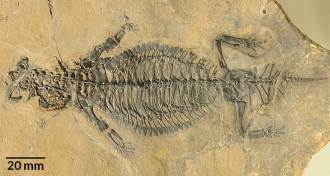 Animals
AnimalsFossil find suggests this ancient reptile lurked on land, not in the water
An exquisitely preserved fossil shows that an ancient armored reptile called Eusaurosphargis dalsassoi wasn’t aquatic, as scientists had suspected.
-
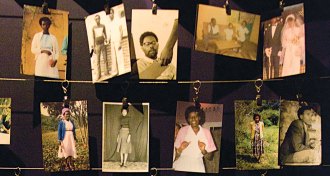 Psychology
PsychologyA look at Rwanda’s genocide helps explain why ordinary people kill their neighbors
New research on the 1994 Rwanda genocide overturns assumptions about why people participate in genocide. A sense of duty, not blind obedience, drives many perpetrators.
By Bruce Bower -
 Particle Physics
Particle PhysicsNeutrino experiment may hint at why matter rules the universe
T2K experiment hints at an explanation for what happened to antimatter.
-
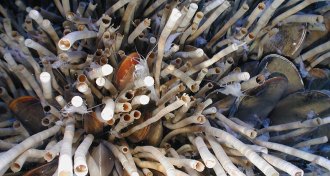 Animals
AnimalsThese record-breaking tube worms can survive for centuries
Deep-sea tube worms can live decades longer than their shallow-water counterparts.
-
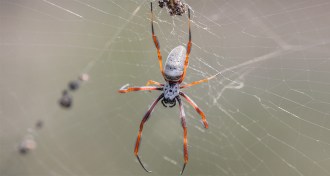 Animals
AnimalsHow spiders mastered spin control
Scientists reveal a new twist on the unusual properties of spider silk.
-
 Astronomy
AstronomyNostalgic Voyager documentary relives first exploration of the solar system
A new TV documentary is a tender tribute to Voyagers 1 and 2, which launched 40 years ago and were the first spacecraft to visit the outer solar system.
-
 Science & Society
Science & SocietyTo combat cholera in Yemen, one scientist goes back to basics
As the cholera epidemic rages on in war-torn Yemen, basic hygiene is the first line of defense.
-
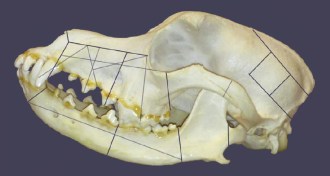 Anthropology
AnthropologySacrificed dog remains feed tales of Bronze Age ‘wolf-men’ warriors
Canine remnants of a possible Bronze Age ceremony inspire debate.
By Bruce Bower -
 Planetary Science
Planetary ScienceWhat Curiosity has yet to tell us about Mars
Curiosity has revealed a lot about Mars in the last five years. But NASA’s rover still has work to do on the Red Planet.
-
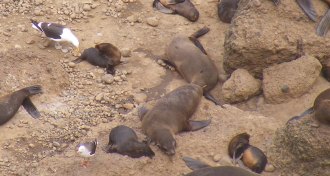 Animals
AnimalsOne creature’s meal is another’s pain in the butt
Kelp and dolphin gulls in Patagonia have found a new food source. But they accidentally injure fur seal pups to get it.
-
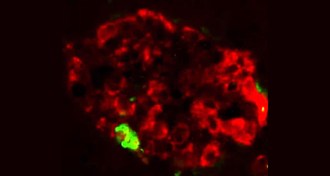 Health & Medicine
Health & MedicineSpread of misfolded proteins could trigger type 2 diabetes
Experiments in mice raise the question of whether type 2 diabetes might be transmissible.
-
 Health & Medicine
Health & MedicineWhen kids imitate others, they’re just being human
In imitation tests, kids readily performed nonsensical actions, but bonobos didn’t. The results hint that excessive imitation may be a uniquely human trait.